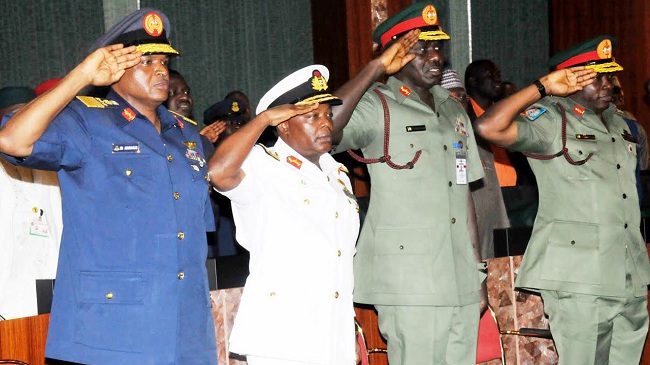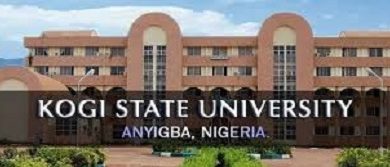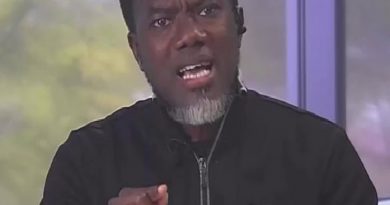Gbajabiamila’s Tactics To Retrieve NASS’ Lost Gravitas
The Speaker of House of Representatives, Femi Gbajabiamila, recently gave Nigerians strong verbal cues to recall the divisive events that defined the Eighth National Assembly (NASS).
The occasion was when the leadership team of the Bureau of Public Service Reforms, led by Alhaji Dasuki Arab, paid a courtesy visit on the Speaker.
From inception through the four-year course of the immediate past NASS, the upper (Red) and lower (Green) chambers were divided along the lines of pro-independence versus pro-presidency legislators.
While the then-Senate President, Dr. Bukola Saraki and Speaker, Yakubu Dogara, were associated with the idea of maintaining legislative independence, the likes of current Senate President and Speaker, Ahmad Lawan and Gbajabiamila, pandered to the whims of the Presidency.
In his remarks on the occasion of the courtesy visit by the Arab-management team, Speaker Gbajabiamila upbraided the country’s service chiefs for failing to turn up for a scheduled meeting with the lawmakers to cross-fertilise ideas on the issue of securing the country.
So pained was the House leadership that they turned back representatives sent by the Chief of Defence Staff, Abayomi Olonisakin, Chief of Army Staff (COAS), Tukur Buratai, Chief of the Naval Staff (CNS), Ibok Ekwe Ibas and the Chief of the Air Staff (CAF), Sadique Abubakar.
While describing the action of the top military brass as an insult to the parliament, Gbajabiamila said reporting them to President Buhari is an appropriate way to register the lawmakers’ displeasure, even as he postponed the meeting and apologized to Mohammed Adamu, the Inspector General of Police (IGP), Yusuf Bichi and Muhammad Babandede, the Director-General of the Department of State Services (DSS) and Comptroller General (CG) of Nigerian Immigration Service (NIS) respectively.
From his countenance, there was no doubt that Speaker Gbajabiamila was greatly distressed by the Service Chiefs’ failure to honour the House’s summons.
But Nigerians remembered how a section of the lawmakers sided with the Service Chiefs and para-military personnel during the 8th plenary when they carried on as if they were above the law.
Attempts by the Saraki/Dogara led 8th NASS to bring the service chiefs to a round table discussion in effort to find solution to the spiraling insecurity in the country did not receive their buy-in even as the security chiefs were condoned by the likes of Gbajabiamila, who saw the plan as attempt to pin the tag of incompetence on President Buhari.
It was gathered that most Nigerians were not amused by the current Speaker’s outrage as the security chiefs served him and his colleagues their own hemlock, especially as he fumed: “This is an insult and a sad development, because all arms of government are supposed to work in unison for the development of the country and the benefit of Nigerians…
“Mr. President has delegated powers to the service chiefs, so we decided to call this meeting, as representatives of the people…Let me say, as a House, as an institution, I cannot understate my disappointment or our disappointment that the rest of the Service Chiefs are not here.”
It was recalled by many how a security summit planned by the 8th NASS ran into troubled waters, simply because some lawmakers who were in a hurry to humour President Buhari politicized the effort to basket ideas and strategies aimed at curtailing and containing the spectre of insecurity in the country.
Even at the height of herdsmen massacre of 73 innocent citizens in Benue State, invitations extended to the then IGP, Abubakar Idris, who also defied President Buhari’s directive to relocate to the state, were subjected to verbal and evasive maneuvers.
Also, when the immediate past Secretary to the Government of the Federation (SGF), Babachir David Lawal, was invited by the Senate in the course of investigation into the operation of the Presidential Initiative on North East (PINE) the divisive politics that trailed the election of floor functionaries emboldened the former SGF to shun the lawmakers’ invitation.
Similar arrogance by the appointees of the President was also witnessed when the Senate also invited the Comptroller General of Nigeria Customs Service (NCS), Col. Hameed Ali, who despite his initial foot-dragging, decided to appear before the Senators clad in mufti.
It was perhaps against the background of those examples of past conceit by the Service Chiefs that a nondescript Arewa Citizens for Democracy (ACD) took on Speaker Gbajabiamila, stressing his crocodile tears of pain, especially threat to report the security chiefs to Buhari as “admission of his screaming incompetence.”
Although the ACD President, AbdulGafar Usman, did not bother to recall how the Speaker and his group tacitly encouraged disobedience of lawful summons by the leaders of the 8th NASS, he declared that Gbajabiamila was aware that “he does not possess the powers he attempted to exercise over the military.” This is a mindset that was pervasive in the last four years, one that insisted there must not be accountability.
The ACD President, who briefed journalists in Kaduna, also alleged, the “House has its fair share of closet-Boko Haram members, who will divulge details of such meetings and other security strategies to the terrorists.”
He said: “From the foregoing, it is glaring that Rt. Honourable Femi Gbajabiamila is yet to appreciate that he is no longer the minority leader, he is not even in the opposition anymore yet he behaves with all the absence of decorum that characterized that fraction of politicians in Nigeria.
“He must wake up to the reality of being the Speaker of the House of Representatives and stop throwing the kind of tantrum that is not even seen among pre-schoolers. His duty includes finding practical solutions to whatever shortcomings exist, assuming he finds any, and not grandstand.”
However, when the Speaker and Service Chiefs later met on the adjourned date, it was to discuss the upsurge of attacks by Boko Haram insurgents and other security challenges in the country. The Speaker, in his remarks while praising the Security Chiefs also decried the “upsurge of attacks, which is threatening to reverse the gains made by the security agencies in the recent past.”
The Chief of Defence Staff, General Gabriel Olonisakin, who spoke on behalf of the Service Chiefs and heads of other security agencies, told the lawmakers that their inability to attend the meeting as earlier scheduled was not out of disrespect to the legislature as an institution or its members, but due to “some pressing exigencies at the time.”
Olonisakin disclosed that the nation’s security agencies have been contending with insurgency and other security challenges over the years with significant success, noting that the situation necessitated the adoption of new strategies.
The observations by Speaker Gbajabiamila on the disposition of the nation’s Security Chiefs to subordinate themselves to civilian authorities, particularly democratic structures did much to underscore how political considerations and interests affected the much needed synergy among the various organs of government in the life of the current administration of All Progressives Congress (APC).
Some observers had noted that the retention of the Service Chiefs after the expiry of their constitutionally stipulated tenure was not only politically motivated, but also affected the fight against various forms of security challenges in the country. Others think the President should know better why he still retains them.
They observe that apart from fighting insurgency, other reasons may be in the nature of the overall political stability of the country, which new Service Chiefs may not immediate understanding of.
Former Speaker of the House of Representatives Ghali Umar Na’Abba noted in an interview with The Guardian that although the current administration has of recent began engaging with the various stakeholders, some issues relating to security, especially discipline and promotion, are being handled through proactive silent diplomacy.
Analysts believe that the lack of united action against the spiraling ogre of insecurity played out in such a way that as soon as the table turned in the political leadership of the country, efforts were made to shroud the true state of things in superlative expletives.
The government could not match its words of messianic arrival with the realities on ground in the war theatre.
Eminent stakeholders and security experts have expressed worries at the level of intelligence gathering and inter-agency cooperation in the management of the nation’s security architecture.
Whether that lack of collaboration was caused or accentuated by the extension of political rivalry between the two major political parties is open to debate.
Nonetheless, Speaker Gbajabiamila’s painful lament at the initial missed opportunity by the security to confer with the legislators, who are the representatives of the people, validated the wisdom of the African saying that one should not throw stones into the market square, because his/her relation may be the victim.
The 8th NASS was denied opportunities to elevate the legislature beyond what Gbajabiamila and colleagues met on ground, but politics of survival robbed it those chances. Those were some of the fears expressed when the current leadership of the NASS was to emerge.
They say when soap is wrapped in leave for so long, there is hardly any difference between soap and leave. The NASS must continue to assert itself.




